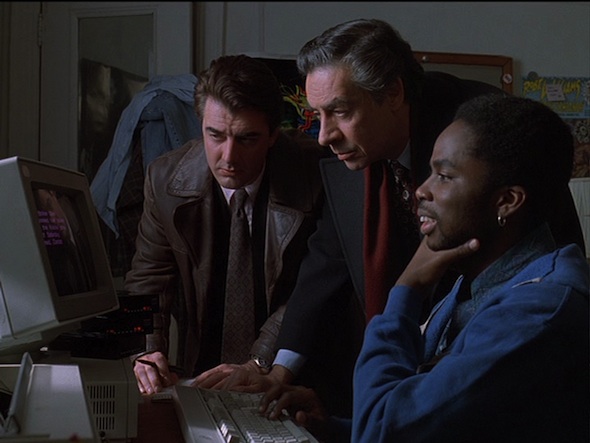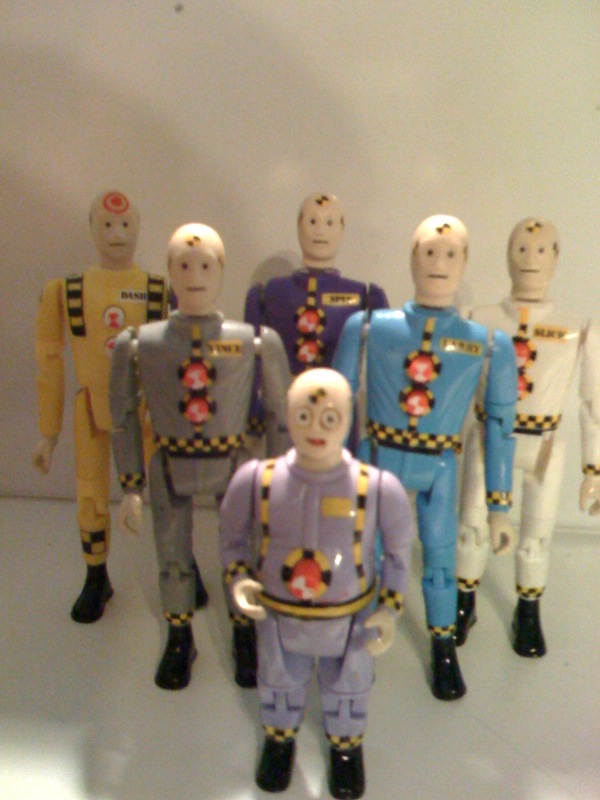I’ve never watched a single episode of Law & Order. Never. Seems impossible, I know. But artist Jeff Thompson did something amazing with the long-running series’ 456 episodes, documenting every appearance of a computer in the history of the show, which premiered, as did the World Wide Web, in 1990. In doing so, Thompson charted the program’s unintentional chronicling of a society in transformation. From Rebecca J. Rosen at the Atlantic:
“…Most of the technology on the show seems to have come as an afterthought. ‘No one was probably thinking about, you know, what kind of mouse should we use, or where should it go in the room,’ says Thompson. They just represented whatever was the norm of the time, and, in doing so, documented details of computer history that perhaps no one at the time could have articulated—details that were so commonplace they went totally unnoticed.
For instance, when computers appear on Law & Order in the early ’90s they are often not on. Who at the time would have said, ‘We have these new machines in the office. We only turn them on when we need to use them, and they are off the rest of the time.’ The fact that computers tended to be off is only noticeable in light of today’s habit of leaving them on, even during a task that is not specifically on a computer (which may not even happen that often anyway). People’s work-streams were not computer-based, and computers only were booted up for a specific task.
Another shift Thompson noticed is that over time, computers attained more prominent physical locations within a room. Early on, computers tended to be off to the side, on a specialized desk, perhaps for many people to share, using it for one specific task. If a character had his or her own computer, it would be located on a separate table behind his or her desk, not on the desk itself. It’s not until 1995 that the first computer makes the leap from behind the desk to its central ‘desktop’ position we all are so familiar with today.”









